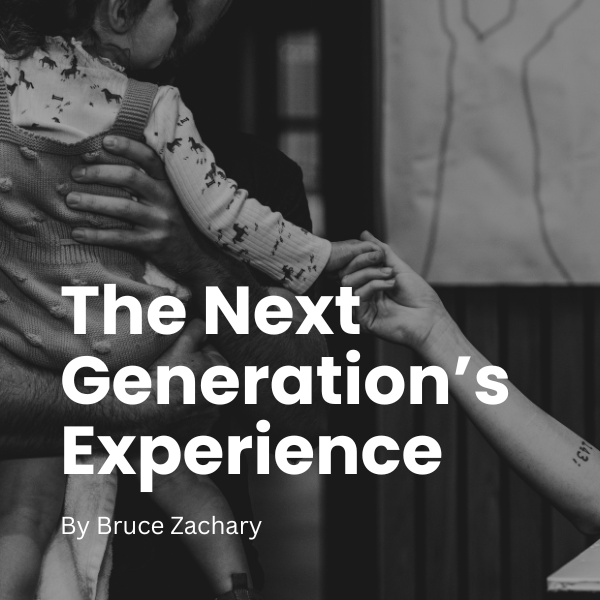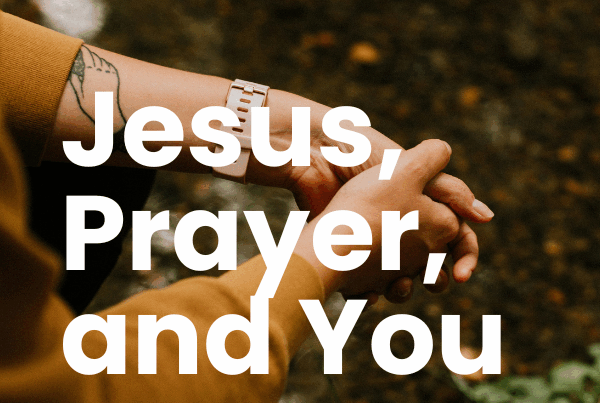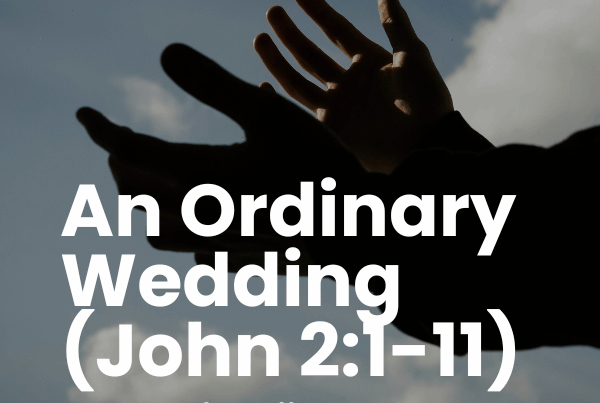
Thesis: One of the great catalysts for faith and growth in Christ is personal experience with God. Consider Paul on the Damascus Road (Acts 9), Isaiah’s vision of God seated on His throne (Isaiah 6), Joshua’s call to lead (Joshua 1), Moses and the burning bush (Exodus 3), and God appearing to Abraham (Genesis 12), Isaac (Genesis 26) and then Jacob (Genesis 28). And God wants you to experience Him! God wants every generation to commit the knowledge of God to next generations, but He also wants every generation to know Him experientially.
Let’s consider Jacob as a case study in Genesis 28 and see what we can glean about the next generation’s experience.
1. The importance of the Father’s instruction and blessing:
Isaac had the opportunity to communicate with Jacob before he departed to flee from Esau. Isaac instructs Jacob not to marry the Canaanite women (1). The people of Canaan were pagan idolaters who worshiped false gods. Instead, Jacob should go to where their ancestors dwelt and marry from the daughters of Laban your mother’s brother (2). These cousins had awareness of the true and living God. We see that Jacob followed the instruction of his father (5). Jacob’s preparation as a man of God would occur outside the Promised Land. This will be the last time Jacob will see his parents alive. Isaac and Rebekah have done their best to train up their child to know and follow God.
Parents have the privilege and responsibility to disciple their children to follow Jesus (Ephesians 6:1-4, Proverbs 22:6, Deuteronomy 6:4-9). Ultimately, we want our children to be equipped to receive instruction from their heavenly Father. And we must encourage them to have their own experience with God. Telling them our experiences will help, but it can’t replace prompting them to cultivate their own.
Isaac pronounced God’s blessings upon Jacob. Isaac prayed that God will bless Jacob like He blessed Abraham with countless descendants who will occupy the land promised to Abraham (3-4, Genesis 12:1-3). In Judaism, a Bar Mitzvah is a rite of passage. A young man (or girl bat) becomes responsible to follow God’s precepts and commandments (mitzvah). It’s a time when a father pronounces blessings upon his child. When Jesus began His public ministry at His baptism at the Jordan River, the Father declares, “This is my beloved Son, in whom I am well pleased.” Similarly, at the Mount of Transfiguration, as Jesus prepared to go to the cross, the Father declares, “This is My beloved Son, in whom I am well pleased. Hear Him!” (Matthew 3:17; 17:5). Words of blessings and approval are important for parents to communicate to their children, especially in times of transition. As well as to remind them that our heavenly Father has blessed us with every spiritual blessing in the heavenly places in Christ (Ephesians 1:3).
2. The importance of experience with God:
Jacob began his journey towards Haran where Abraham’s relatives dwelt (10). As the sun had set, Jacob settled for the night (11). The place was the same place where Abraham had built an altar to worship God when he first arrived in the Promised Land and when Abraham returned from Egypt to the Promised Land (Genesis 12:8, 13:3-4).
As Jacob slept, he dreamt and saw a ladder on the earth extending to heaven (12). And there the angels of God were ascending and descending on it (12). Ascending and descending indicates the angelic beings are present on earth and heaven (See Hebrews 1:14 re ministering spirits or “guardian angels” and Hebrews 12:22 re an innumerable company of angels). Above the ladder (i.e., in heaven) Jacob sees God, who declares, I am the Lord God of Abraham your father and the God of Isaac; the land on which you lie I will give to you and your descendants.” This was the first time that God appeared to Jacob directly as He did with Abraham and Isaac. There are seven recorded occurrences in Genesis of God appearing to Jacob (31:3, 32:12, 32:24-30, 35:1, 35:9-13, 46:1-4).
The ladder connecting heaven and earth is a picture of Jesus as the nexus connecting God and man, and heaven and earth. Jesus told Nathaniel that he would see heaven open and the angels of God ascending and descending upon Himself (John 1:51). Jesus is the Mediator of the New Covenant and the only Mediator between God and man (Hebrews 12:24, 1 Timothy 2:5).
When Jacob awoke from his sleep, he declared “Surely the Lord is in this place, and I did not know it” (16). Similarly, we can easily be distracted by the things of this world such that we’re unaware of God’s presence. Jesus has promised that He will be with us and will not leave us or forsake us (Matthew 28:20, Hebrews 13:5). The awareness of God’s presence produced a reverent respect for God (17). The awareness of God’s presence, and access to heaven (17, John 14:6), produced a sense of awe in Jacob, a feeling of reverential respect mixed with fear or wonder (17).
Note: God is not limited to a particular place, but it’s good to find places where God’s presence and revelation are experienced by you (e.g., the Word, church, small group, contemplation time, prayer, reflection time, nature, home, etc.).
YHWH is the Lord God, the covenant keeping God, of Abraham, Isaac, and now Jacob (13). God’s promises to Jacob were first revealed to Abraham (Genesis 12:3) and then Isaac (Genesis 26), and now to Abraham’s grandson Jacob (13-14). God then promises to protect Jacob, return him to the Promised Land, and be with him until the promises are fulfilled (15). This would be especially comforting as Jacob’s brother Esau plotted to kill Jacob after their elderly father Isaac passed.
Note: When you sense God’s presence, hear God’s promises, and believe, the reasonable response is worship!
3. The response of worship:
Jacob’s awareness of God, and his experience, prompt him to worship and dedicate himself to God. Jacob names the place Bethel meaning “House of God” (19). He places a stone as a pillar or monument and as an homage to God. He anoints the stone with oil as an act of dedication or consecration (declaring something sacred) and worship (18). It’s also a tangible reminder to Jacob, like a journal entry.
Jacob is beginning his experience with God, and it will be transformed through the years with God. Nevertheless, his immediate response to God’s presence and promises is to worship God. Then Jacob made a vow with God that reflects the immaturity of his faith. In essence, Jacob promises that if God provides and protects him and returns him to the Promised Land, then he (Jacob) will worship and give a tenth (tithe) to God (20-22). This is the first vow of a person recorded in the Bible, and it shows the beginning of Jacob’s growing experience and faith. We should worship God in response to a growing understanding of who He is and what He has done (e.g., the cross) rather than conditioning our worship of God.
Questions:
Q1. Describe a time when you sensed God’s presence.
Q2. What are some of God’s promises that are especially meaningful to you in this time of your life?
Q3. How has your experience with God impacted your worship of God?
Q4. What advice would you give to someone who wanted to experience God?







